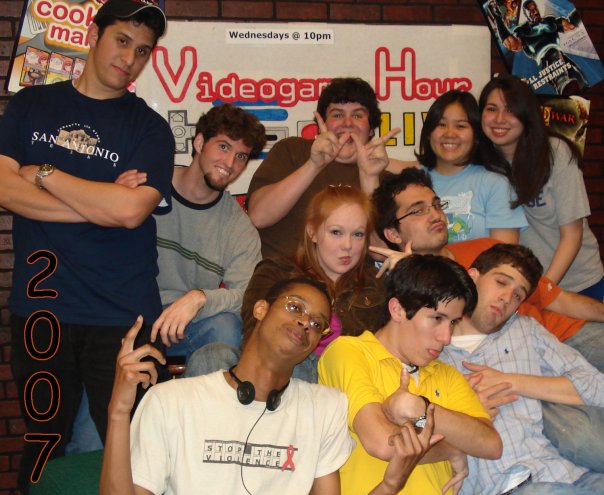This post has not been edited by the GamesBeat staff. Opinions by GamesBeat community writers do not necessarily reflect those of the staff.
 The following started as a comment in response to Dan Hsu's post on review events and call for opinions. When the comment exceeds the size of the article, it's become a commentary. As such the following is my personal perspective on the issue.
The following started as a comment in response to Dan Hsu's post on review events and call for opinions. When the comment exceeds the size of the article, it's become a commentary. As such the following is my personal perspective on the issue.
I don't review games much anymore. I may get back into it, but if I did it would be for my own blog as I have enough issues with scoring systems as is anyways. I've never gone to one of those big review events. I don't even review early games on special debug systems. If I'm lucky enough to get a retail copy before it ships to stores, I'm thrilled to even put out a day-and-date review.
I've never worked on the level of a Hsu. Heck, I fear I may never achieve working under someone the level of a Hsu. My limited experience in print, online, and broadcasting has rarely granted me any notable access, and I probably have less now than I did when I left college. Forget resort hotels — In all honesty, I would probably extend some degree of goodwill to a company that gave me half the access he has.
I say all that to say this: I understand the skepticism. I encourage a healthy amount of it for anyone. But I mostly feel comfortable the people that do get access to such events mostly are as affected as some of the paranoia seem to assume.
To Hsu's point, game journalists aren't "common readers," to borrow a term from Bitmob community member Chris Rose. It's nearly impossible for them to game like "common readers." Most people outside of the press don't have that level of access, the sheer volume of games to play, the interaction with developers…. That's what separates someone like Hsu from someone like me from one of my friends or family members.
 This all comes with being in the press no matter what the beat is. Political reporters ride on presidential candidates' planes and buses on the campaign trail and attend correspondent dinners. Sports reporters get exclusive access to athletes and have their own passes and special seating in stadiums for games.
This all comes with being in the press no matter what the beat is. Political reporters ride on presidential candidates' planes and buses on the campaign trail and attend correspondent dinners. Sports reporters get exclusive access to athletes and have their own passes and special seating in stadiums for games.
The overwhelming majority of us never have and never will be catered to in such a way.
So while the "common reader/viewer" gets to sit back and just take in a speech, a match, a concert, or some other event, a reporter/reviewer/analyst is working. They are taking notes, in many cases already outlining stories/analysis as things are going along. And they do all this under the stress of a deadline. While that person has the task of relaying whatever their subject is to the audience, they never have the same experience as their audience.
At a local Need for Speed: Shift preview event, I was playing for about four hours on a 40" HD screen while representatives were talking up the game. At the same time, I was trying to set up an interview and take extra footage that might or might not wind up as part of the final package. This was all set within a downtown bar with a crowd of people drinking and holding conversations on top of the noise of a DJ playing music. Since it was evening, I was attempting to write notes in a fairly dark space.
As a fan experience in getting to preview a game before release, the event was pretty cool. In terms of a work environment, this was actually more annoying than one would think.
Yes, it wasn't a review event, and most I've heard of aren't that chaotic. But a common thread I've heard in podcasts and read in articles is that most of these review events aren't good working environments either. But people are going to do what they have to in order to deal with the business pressure of getting something published in the Internet age.
Hsu says professionals rarely review in the same environments as their readers. Considering everything they're exposed to, I'd take that a step further and say they never do that no matter how badly they try. So the entire principle of a member of the press tasked with experiencing games and relaying any information like a "common reader" is senseless.
The "common reader" probably doesn't even experience a game the same as the next "common reader." One "common reader" may play a game on a 30" standard definition TV in a small room with a pet while another plays the same game with a 52" plasma TV with surround sound.
On the surface, does it look a little sketchy when outlets have a policy of not accepting gifts yet will take flights and nice hotel rooms to cover these events. Sure. But anyone with even a small amount of experience in the press and dealing with media relations knows that PR is always putting its best foot forward with you. That's their job and even if it didn't benefit me, I can't fault them for trying to earn a paycheck presenting their company in the best possible light. I earn my money, on the occasions I actually get paid for doing this, by not letting that cloud what I'm trying to cover.

If I show up to an event with a camera and/or a microphone and press credentials, I'm ushered to the front of lines and directly to the developers. At a Need for Speed: Shift preview event earlier in the fall, the marketing team created an impromptu set on the venue's balcony just so I could film an interview for a preview. They in no way shape or form had to do that for me. I'm a nobody in this business. I also knew, however, that it benefited them to have the interview look as good as possible.
The bigger the potential audience reached, the more accommodating they are to that press member. Hence why smaller outlets such as what I've worked generally don't get the invite. It's part of the writers job in to be skilled enough to see past that and focus on what matters.
Not having worked for a bigger outlet I only have anecdotal evidence and observation to base how I feel bigger companies assign their work. Generally, I'm unaware of writers being picked up by the 1UP's, GameSpot, and IGN's of the world that have no experience whatsoever anymore than ESPN, CNN, The New York Times, Rolling Stone or other major press outlet for their subject matter. Rarely, if ever, have I noticed a green reviewer get to cover the triple A titles in office let alone go to a one of these review events. Unless they are really filling a need for a genre that often that often requires someone with a special interest, i.e. it was noted in the latest IGN Podcast Beyond that sports game reviewers are often a hole many sites tend to have, in many cases the newest reviewer get to sharpen their chops on lesser titles.
Much like the rookie doesn't get to cover the Super Bowl or the State of the Union address, these big events generally go to the reviewers that are seasoned and can be trusted to handle all that goes with it. If can't prove to be do your job and be fair with criticism with whatever level of access offered, you don't get sent. At least not from a well-run operation. Most of the reviewers I've read reviews from such events are names I generally trust to be a professional whether sent out to a fancy resort or to a bayou outhouse. If I don't have that sort of trust, I don't read them.
During an episode of X-Play, Adam Sessler and Morgan Webb also address the issue as Ubisoft flew Webb and a select group of others out to Italy as part of the Assassin's Creed II review event. Webb essentially said the decision was made to be there long enough to finish the game and film on-location spots for the show, but she left early once she had gotten what they needed for the show. From their standpoint, her being there to shoot and get the review done was ethical so long as it was only as long to get work done.
 I also vaguely one major site refuse to send a reviewer to such a Metal Gear Solid 4 event just to attempt to eliminate all perception of being bought off. I apologize for not remembering all of the details, but the reviews editor commented on a podcast that for them protecting their image of integrity was more important than putting getting a review published by a certain date.
I also vaguely one major site refuse to send a reviewer to such a Metal Gear Solid 4 event just to attempt to eliminate all perception of being bought off. I apologize for not remembering all of the details, but the reviews editor commented on a podcast that for them protecting their image of integrity was more important than putting getting a review published by a certain date.
But you can't fully eliminate every person's perception of bias. That's a fool's endeavor. There are always going to be fanboys and skeptics that question why I review was scored the way it was. Think about how many reviews each year done for games without review events than readers gripe about being too high or low becomes of some writer or site bias toward a system, game, developer or publisher. You can do everything to any one person's definition of "right" and will always have some upset detractor. That's the business.
As such, so are these events. It's a business decision. An outlet has the right to make whatever policy they want on such events. If the reviewer is incapable of of separating the event from the game, they shouldn't be there. If an editor sends someone unfit for the task, they might not be completely fit to make those decisions as an editor.
But regardless of what the policy is and the quality of the decision-making, you have the right as a consumer to support them or not. If you as a reader find it an ethical problem, do your own due diligence and research whether such an event was held. If so, you have to choice to read the review or not. You also have the choice to voice your concerns to an online or print publication's editorial staff.

Gerren LaQuint Fisher wears his fitted moneyhat tilted, brim low. He also contributes to The Game Reviews, tweets @gerrenlaquint, and runs a humble little blog called The Underscore
